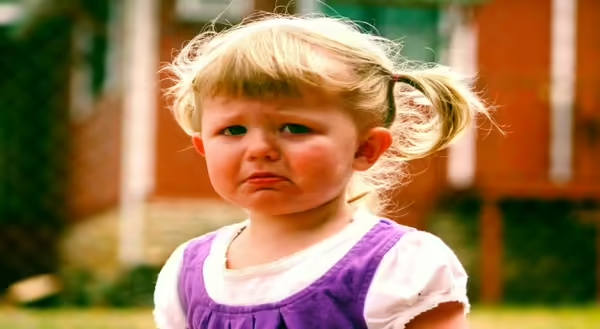
We talk a lot about stress during the holidays and try to find ways to reduce or make that stress more manageable. However, we usually talk about it in regards to us – the adults – and sometimes forget that holidays can be difficult for children as well.
Parties, shopping, and other activities may take families out of their usual daily routine and these routines provide security and stability for young children. It can be difficult for children to follow directions, use gentle hands, and wait their turns when they are hungry, tired, or overstimulated. Regular meals, sleep times, and opportunities to play and relax help children regulate their behavior and emotions.
Plan for challenging moments
Planning for challenging moments can help make your holiday times more pleasant. Help your child prepare for the routine and schedule changes that accompany the holidays by using a variety of strategies to help your child understand what is going to happen. The Illinois Early Learning Clearinghouse shares several ideas that can help children who struggle with changes in daily routines:
- Picture schedule: Begin by thinking through the changes that will happen. Help your child understand these changes by using a picture schedule (i.e., pictures of what may happen throughout the day). Pictures can help your child understand the order of events.
- If/then chart or statement: You may also try an “if/then” chart or statement to make behavior expectations clear. For example, you might say, “If you can sit in your chair for snack, then you can play with blocks.”
Parties and sensory overload
The holidays often include parties or events. Attending crowded events may be especially hard for young children. Large family gatherings may be loud or busy. These crowded, high-energy events may lead to sensory overload. Plan ahead to use strategies that will help your child be successful during these experiences. Here are a few strategies to get you started:
- Allow for sensory breaks: After you are inside at a gathering, plan a walk or time on the playground for some fresh air and movement. If it is too cold outside, play a gross motor activity indoors (e.g., hide and seek, playing catch).
- Consider sensory challenges: Holiday gatherings may be filled with sounds, sights, and smells. If you expect loud music or bright lights, bring headphones or sunglasses to lower the sound and light, respectively.
- Write a story: Fold a piece of paper and make a book with each activity that will happen during the event. For example, the story may state: “First, we will go to Aunt Lucy’s house and take off our coats. Next, we will play. After, we will eat lunch. Then, we will get ready to go home.” Draw pictures to accompany each step. You can also include photos of the individuals you will see so your child can look forward to seeing these special people.
Even with the best advance planning, challenging moments may occur that cause children to have tantrums or “meltdowns.” Remember, these behaviors are typical for all young children. Remind yourself and your child to take a deep breath, take a break, and then regroup.
Source
Illinois Early Intervention Clearinghouse, eiclearinghouse.org/newsletter/2019winter/